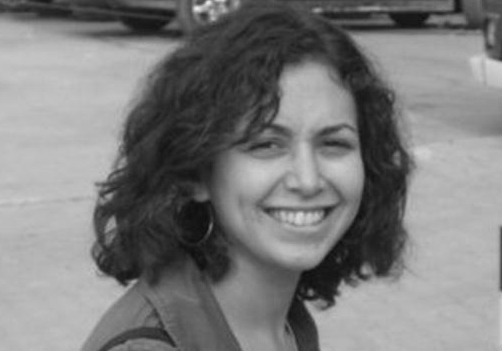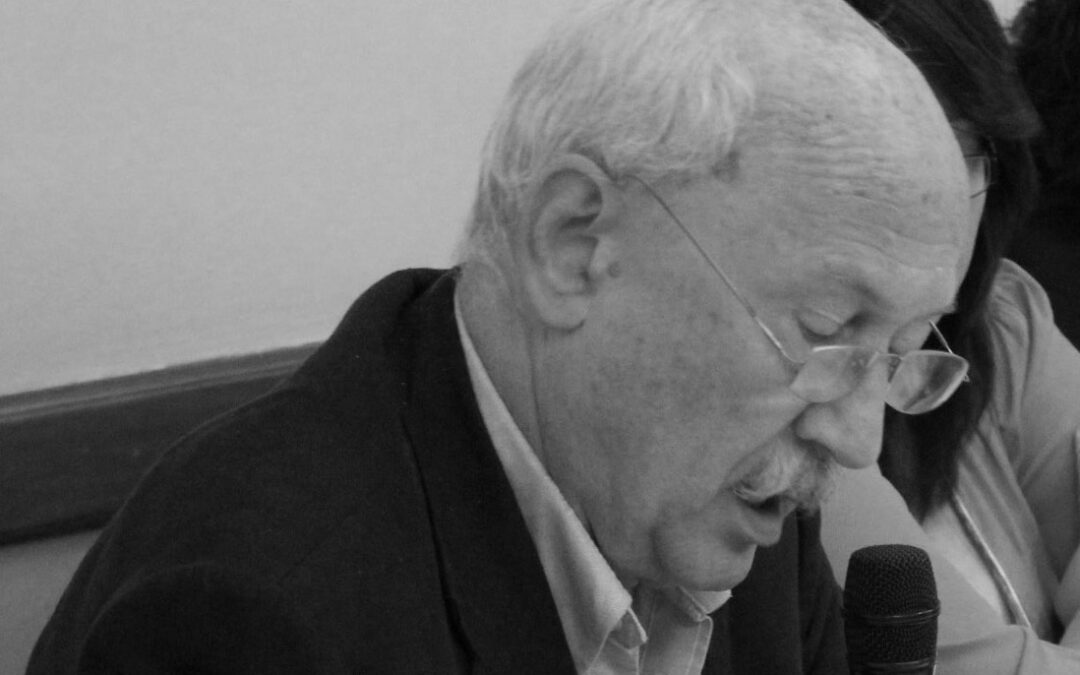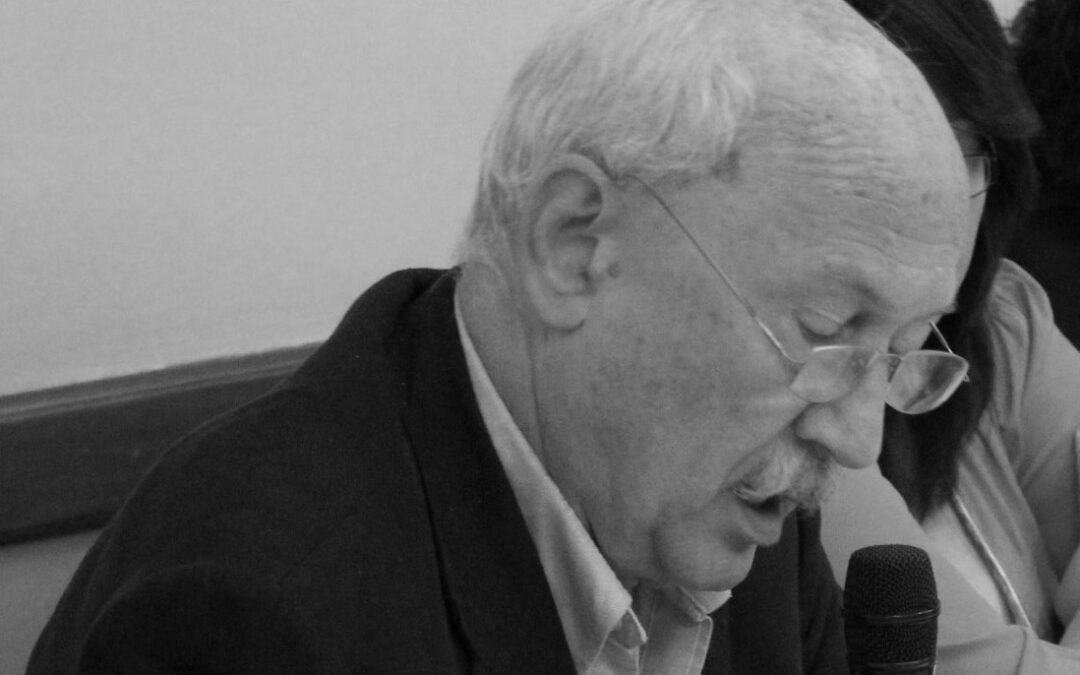
Jun 21, 2015 | News
Today, one year on from the arrest and detention of human rights lawyer Yara Sallam and 22 peaceful demonstrators, the ICJ calls for their immediate and unconditional release.
On 21 June 2014, Yara Sallam, together with 22 others, was arrested and detained in the context of a peaceful demonstration in Heliopolis, Cairo.
“The Egyptian authorities must end their campaign to silence human rights defenders and all those suspected of opposing the military and the government through politically motivated prosecutions and trials,” said Said Benarbia, Director of the ICJ Middle East and North Africa Programme.
To this end, they must immediately and unconditionally release Yara Sallam and the 22 other detainees,” he added.
The demonstrators were calling for the revocation of Law No. 107 of 2013, on public meetings, processions and protests, and the release of all those detained under it.
They were forcibly dispersed by security forces and men in civilian clothes.
The ICJ has previously noted that this law is contrary to Egypt’s obligations under international law.
It imposes overly restrictive limitations on the exercise of the right to freedom of assembly and it grants sweeping powers to security forces to disperse non-violent protests, including authorizing the use of lethal force when it is not strictly necessary to protect lives, the Geneva-based organization says.
On 26 October 2014, the 23 accused were convicted by the Heliopolis Misdemeanour court and sentenced to three years in prison and three years of police monitoring on charges of, among other things, “participating in a procession of more than five people that put public safety in danger with the aim of committing the crimes of assault on people and property and influencing public authorities in their duties by using force and violence.”
Two months later, the Court of Appeal upheld the convictions, while reducing the sentence to two years imprisonment and two years of police monitoring. A challenge before the Court of Cassation is pending.
The trial of the 23 defendants violated their rights to a fair and public hearing under international law, including the International Covenant on Civil and Political Rights, a key human rights treaty ratified by Egypt in 1982.
Their lawyers were prevented from cross-examining witnesses. Members of the public, including family members, were prohibited from entering the courtroom, without any valid reason.
Further, based on its review of the case file and court judgments, the ICJ is also concerned that both courts convicted the accused in the absence of any substantial or credible evidence of the guilt of any of the 23 defendants, and without seeking to establish the personal criminal responsibility of each individual accused.
Contact:
Alice Goodenough, Legal Adviser of the ICJ Middle East and North Africa Programme, t: +44 7815 570 834 ; e: alice.goodenough(a)icj.org
Nader Diab, Associate Legal Adviser of the ICJ Middle East and North Africa Programme, t: +41 78 89 41 877 ; e: nader.diab(a)icj.org
Egypt-Release Yara-News-Press release-2015-Arabic (full text in PDF, Arabic)

Jun 20, 2015 | Artículos, Noticias
La CIJ pide que el Ministerio Público lleve a cabo una investigación rápida y eficaz en el caso del asesinato de la defensora de los Derechos Humanos de las personas lesbianas, gays, bisexuales, trans e intersex (LGBTI).
La CIJ expresa su profunda preocupación por los ataques y discriminación que sufren defensores y defensoras de los derechos humanos de la comunidad LGBTI en El Salvador.
Es necesario, para prevenir la impunidad, que las autoridades investiguen los más de 500 asesinatos que, según las organizaciones que defienden los derechos humanos de la comunidad LGBTI, han ocurrido desde el año 1996.
Especial conmoción ha causado el asesinato de Francela Méndez, mujer trans y activista defensora de los derechos humanos de la comunidad transgénero en El Salvador, quien formaba parte de la red salvadoreña de Defensoras de Derechos Humanos. Francela fue asesinada el pasado 30 de mayo cuando se encontraba en casa de una amiga, quien también murió en el ataque.
Ante esta situación, la CIJ exige que el Ministerio Público lleve a cabo una investigación pronta y eficaz, que permita identificar a los culpables.
El asesinato de Francela Méndez no debería quedar en la impunidad; es necesario que se identifique a los culpables, para evitar que hechos similares se sigan cometiendo en el futuro.
La CIJ insta al Sector Justicia a investigar de oficio estos crímenes, y a procesar y sancionar a quienes resulten responsables.
La CIJ considera que El Salvador debe adoptar un enfoque diferenciado para garantizar los derechos a la vida e integridad de la comunidad LGBTI y de defensores y defensoras de los derechos humanos de las personas LGBTI.
En tal sentido, urge implementar una campaña pública en medios de comunicación masiva, a favor del respeto a sus derechos.
Ramón Cadena, Director del programa de la CIJ para Centroamérica expresó: “Pedimos al Fiscal General de la República, que lleve a cabo una investigación objetiva para esclarecer el caso de Francela Méndez. Además, el Organismo Legislativo del Estado de El Salvador debería aprobar una Ley de Identidad de Género para poder hacer efectivos los derechos de la comunidad LGBTI, así como abstenerse de aprobar leyes o reformas constitucionales que vayan en detrimento de sus derechos. ”

Jun 20, 2015 | News
La CIJ pide que el Ministerio Público lleve a cabo una investigación rápida y eficaz en el caso del asesinato de la defensora de los Derechos Humanos de las personas lesbianas, gays, bisexuales, trans e intersex (LGBTI).
La CIJ expresa su profunda preocupación por los ataques y discriminación que sufren defensores y defensoras de los derechos humanos de la comunidad LGBTI en El Salvador.
Es necesario, para prevenir la impunidad, que las autoridades investiguen los más de 500 asesinatos que, según las organizaciones que defienden los derechos humanos de la comunidad LGBTI, han ocurrido desde el año 1996.
Especial conmoción ha causado el asesinato de Francela Méndez, mujer trans y activista defensora de los derechos humanos de la comunidad transgénero en El Salvador, quien formaba parte de la red salvadoreña de Defensoras de Derechos Humanos. Francela fue asesinada el pasado 30 de mayo cuando se encontraba en casa de una amiga, quien también murió en el ataque.
Ante esta situación, la CIJ exige que el Ministerio Público lleve a cabo una investigación pronta y eficaz, que permita identificar a los culpables.
El asesinato de Francela Méndez no debería quedar en la impunidad; es necesario que se identifique a los culpables, para evitar que hechos similares se sigan cometiendo en el futuro.
La CIJ insta al Sector Justicia a investigar de oficio estos crímenes, y a procesar y sancionar a quienes resulten responsables.
La CIJ considera que El Salvador debe adoptar un enfoque diferenciado para garantizar los derechos a la vida e integridad de la comunidad LGBTI y de defensores y defensoras de los derechos humanos de las personas LGBTI.
En tal sentido, urge implementar una campaña pública en medios de comunicación masiva, a favor del respeto a sus derechos.
Ramón Cadena, Director del programa de la CIJ para Centroamérica expresó: “Pedimos al Fiscal General de la República, que lleve a cabo una investigación objetiva para esclarecer el caso de Francela Méndez. Además, el Organismo Legislativo del Estado de El Salvador debería aprobar una Ley de Identidad de Género para poder hacer efectivos los derechos de la comunidad LGBTI, así como abstenerse de aprobar leyes o reformas constitucionales que vayan en detrimento de sus derechos. ”

Jun 19, 2015 | News
The ICJ today called on the Moroccan authorities to amend the draft laws on the High Judicial Council, the Conseil supérieur du pouvoir judiciaire (CSPJ), and on the Statute for Judges, to ensure their full compliance with international law and standards on judicial independence.
The ICJ called on the authorities to ensure that: the CSPJ is institutionally and organizationally independent; is exclusively competent to manage the career of judges, including the selection of trainee judges; is involved in determining the budget for the judiciary; and is empowered to administer the allocation of judicial resources.
This statement comes following the conclusion of a high-level mission to Morocco from 12 to 18 June 2015 to engage with members of the executive, legislative and judicial branches, as well as representatives of civil society, on the judicial reforms initiated by the Moroccan authorities.
“The Draft Law on the CSPJ should enhance and expand the guarantees of judicial independence provided for by the 2011 Constitution, including by ensuring that the General Inspection Service (GIS) is under the authority of the CSPJ, that the organic law on the CSPJ sets out the GIS composition, competencies, and areas of intervention, and that the CSPJ oversees all issues pertaining to judicial administration,” said Philippe Texier, ICJ Commissioner and a former judge of the French Cassation Court (photo).
During this mission, the ICJ submitted to the authorities two memos analyzing the draft laws in light of international law and standards and formulating recommendations for amendments and reform.
In particular, the ICJ called for the majority of the members of the CSPJ to be judges who are chosen by their peers, for the selection and appointment of the President and the General Prosecutor of the Cassation Court to be based on objective criteria and made through transparent procedures, and for the grounds and procedure for dismissal of members of the CSPJ to be prescribed by the Law.
The ICJ is also deeply concerned that the draft law on the Statute for Judges does not contain any provisions on the criteria and procedure for selecting trainee judges.
Under the current framework, the process of selecting trainee judges is under the effective control of the Ministry of Justice.
Furthermore, while the Draft Laws entrusts the CSPJ to draft a Code of Judicial Conduct, they do not specify that, once adopted, the Code should be the basis on which judges will be held to account professionally, the Geneva-based organization says.
“The Draft Law should be amended to set out fair and transparent procedures for selecting trainee judges, to ensure that the CSPJ is fully competent to oversee the entire selection process, and to provide for the code of ethics and judicial conduct to be established in the law as the basis on which judges will be held to account professionally, including by clearly and precisely defining disciplinary offences,” said Said Benarbia, ICJ Director of the Middle East and North Africa Programme.
Contact:
Theo Boutruche, Legal Adviser of the ICJ Middle East and North Africa Programme, t: +96 170 888 961, e: theo.boutruche(a)icj.org
Additional information:
The ICJ delegation was led by Mr. Philippe Texier, former judge of the French Cassation Court and ICJ Commissioner.
The delegation met with Mr. Driss Dahak, Secretary General of the Government; Mr. Abdelilah Lahkim Bennani, Secretary General of the Ministry of Justice; Mr. Mustapha Farès, First President of the Cassation Court; Mr. Mohamed Meddah, Prosecutor General of the Cassation Court; Mr. Mohamed Cheikh Biadillah, President of the Chamber of Counsellors; Mr. Omar Adkhil, President of the Commission of Justice, Legislation and Human Rights of the Chamber of Counsellors; Mr. Mohamed Zerdali, President of the Commission of Justice, Legislation and Human Rights of the Chamber of Deputies; Mr. Abdellatif Chentof, President of the Judges Club; Mr. Mohamed Khadraoui, vice-President of the Amicale Hassania; and Mr. Mohamed Akdim, President of the Bar Associations of Morocco (ABAM).
Morocco-Draft Law CSPJ-News-press releases-2015-ARA (full text of statement, in PDF, Arabic)
Morocco-Memo on the CSPJ-Advocacy-Briefing paper-2015-ENG (full text of memo 1 in PDF)
Morocco-Memo on the CSPJ-Advocacy-Briefing paper-2015-ARA (full text of memo 1 in PDF, Arabic)
Morocco-Memo on Statute for Judges-Advocacy-Briefing paper-2015-ENG (full text of memo 2 in PDF)
Morocco-Memo on Statute for Judges-Advocacy-Briefing paper-2015-ARA (full text of memo 2 in PDF, Arabic)

Jun 19, 2015 | Communiqués de presse, Nouvelles
La CIJ a invité aujourd’hui les autorités marocaines à modifier les projets de loi sur le Conseil supérieur du pouvoir judiciaire (CSPJ) et sur le Statut des magistrats, afin d’assurer leur pleine conformité avec les normes et standards du droit international sur l’indépendance judiciaire.
La CIJ a invité les autorités à assurer que : le CSPJ soit indépendant aux niveaux institutionnel et organisationnel, ait une compétence exclusive quant à la gestion de la carrière des magistrats, notamment en ce qui concerne la sélection des juges stagiaires, soit impliqué dans la détermination du budget de la magistrature, et habilité à administrer l’allocation des ressources judiciaires.
Ce communiqué fait suite à la conclusion d’une mission de haut niveau qui s’est déroulée au Maroc entre le 12 et le 18 juin 2015 visant à rencontrer des membres des branches du pouvoir exécutif, législatif et judiciaire, ainsi que des représentants de la société civile, afin de s’entretenir sur les réformes judiciaires entreprises par les autorités marocaines.
Durant cette mission, la CIJ a soumis aux autorités deux mémorandums analysant les projets de loi à la lumière des normes du droit international et formulant des recommandations pour des modifications et des réformes.
Contact:
Theo Boutruche, Conseillé juridique du programme de la CIJ pour le Moyen Orient et l’Afrique du nord, t: +96 170 888 961, e: theo.boutruche(a)icj.org
Information supplémentaire:
La délégation de la CIJ était dirigée par M. Philippe Texier, ancien juge à la Cour de cassation française et commissaire de la CIJ.
La délégation a rencontré M. Driss Dahak, Secrétaire général du gouvernement ; M. Abdelilah Lahkim Bennani, Secrétaire général du ministère de la Justice et des Libertés ; M. Mustapha Farès, Premier Président de la Cour de cassation ; M. Mustapha Meddah, Procureur général de la Cour de cassation ; M. Mohamed Cheikh Biadillah, Président de la Chambre des Conseillers ; M. Omar Adkhil, Président de la Commission de justice, législation et droits de l’homme de la Chambre des Conseillers ; M. Mohamed Zerdali, Président de la Commission de justice, législation et droits de l’homme de la Chambre des Représentants ; M. Abdellatif Chentof, Président du Club des magistrats du Maroc ; M. Mohamed Khadraoui, vice-Président de l’Amicale Hassania des magistrats ; et M. Mohamed Akdim, Président de l’Association des barreaux du Maroc (ABAM).
Morocco-Draft Law CSPJ-News-press releases-2015-FRE (Communiqué de presse complet en PDF)
Morocco-Memo on the CSPJ-Advocacy-Briefing paper-2015-FRE (Texte complet en PDF)
Morocco-Memo on Statute for Judges-Advocacy-Briefing paper-2015-FRE (Texte 2 complet en PDF)









